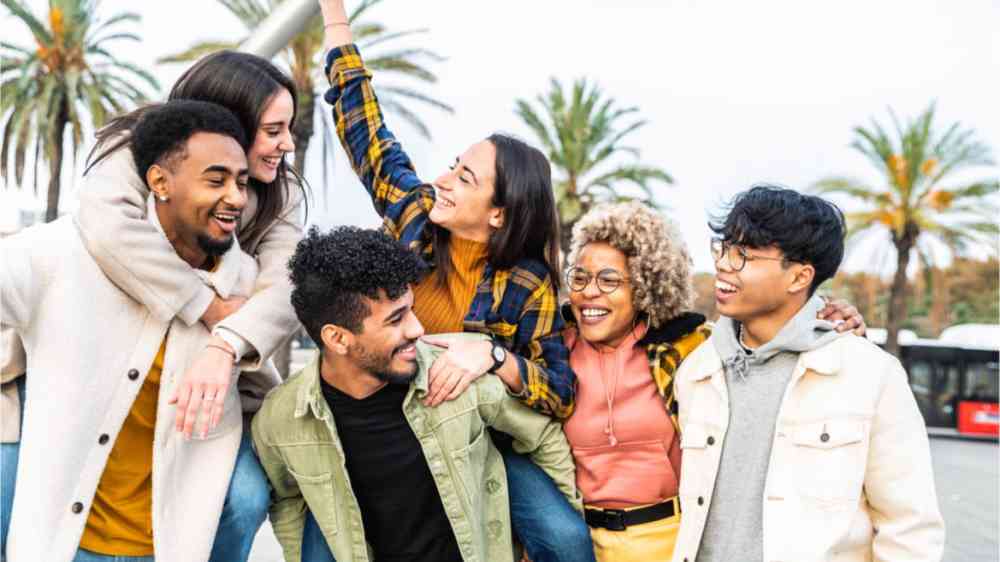Please help us improve PreventionWeb by taking this brief survey. Your input will allow us to better serve the needs of the DRR community.
Inclusive disaster risk reduction starts early: Supporting disaster resilient young people in Australia

Over the past few years, Australia has experienced the enormous impacts of floods, fires, and the COVID-19 pandemic – testing our resilience like never before.
Extreme weather events and disasters, including COVID-19, don’t discriminate; but their impacts are often felt disproportionately across communities. Often, women and children, those with disability, the elderly, and youth suffer the impacts of disasters most.
All community voices must be heard
Being heard, feeling safe, and feeling deeply connected are important for all of us: this is why Australia advocates for and supports localised and inclusive disaster risk reduction action, as part of our National Disaster Risk Reduction Framework, and in our commitment and actions under the Sendai Framework for Disaster Risk Reduction.
All community voices must be heard as part of disaster planning and resilience building processes – including young people. In 2020, up to 7.91 million children and young people lived in Australia, approximately 31 per cent of the population. The Australian Institute for Disaster Resilience (AIDR) Education for Young People program is working to support children and young people to participate in building resilient communities for Australia’s future.
A voice for children and young people
Why? Because children and young people introduce fresh ideas and perceptions; they are excellent social networkers and community-builders; and they have unique needs in emergencies.
Throughout Australia, in previous responses young people have proven they are good at mobilizing people and resources, and they are key players in designing and creating resources for their peers – such as educational tools, a disaster management school curriculum (including school emergency response plans), disseminating warnings, preparedness measures and reaction capacities, and promoting planning for the protection of the environment with their parents and the wider community.
One such initiative is the Our Voice programme, run by 54 Reasons – the Australian Services section of Save the Children Australia. Funded by the Paul Ramsay Foundation, Our Voice brings together local councils, service providers, and communities to hear from children and young people, to ensure their voices and needs are listened to and reflected in emergency preparedness, response, and recovery.
Delivered in communities which have experienced or are preparing for a major disaster, children and young people engage with local decision makers to share their experience in disasters, express their unique needs and engage in two-way discussions enabling them to become powerful agents of change and have their voices and needs reflected in emergency management planning.
By starting early and in local communities, young people develop the awareness, confidence and life-long skills to contribute to reducing risk and taking action before, during and after an emergency or disaster.
A more resilient, sustainable and inclusive future
The Global Youth Platform for DRR and Climate Action 2022 will be held on 23 May 2022 during the Seventh Global Platform on Disaster Risk Reduction. This is a significant opportunity for children and youth from all over the globe to constructively participate and contribute their perspectives on the call of action for DRR financing and resilience – one that requires a new approach in the wake of COVID-19 pandemic.
Australia looks forward to reviewing the recommendations from that session. These will be summarized in the declaration of the Global Children & Youth Statement on DRR and Climate Action.
Disaster resilient young people support a more resilient, sustainable and inclusive future for us all.
- Young participant

MIKTA is a diverse and cross-regional grouping of powers that brings together Mexico, Indonesia, the Republic of Korea, Turkey and Australia. Given the growing challenges our planet is faced with, including disasters from droughts, desertification, loss of biodiversity, food shortages, water scarcity, wildfires, and sea-level rise, MIKTA has reiterated its commitment to investing more in research, innovation and infrastructure to strengthen environmental sustainability, adaptation, and resilience against the adverse effects of climate change and disaster risks. In line with this commitment, MIKTA undertakes a joint advocacy campaign highlighting the triple benefits of investing in prevention to accelerate disaster risk reduction, protect development gains and build resilient communities.
The campaign promotes diverse local and regional examples of efforts by the MIKTA members to strengthen disaster risk resilience through investing in prevention. Through sharing of experiences and good practice, the campaign aims to strengthen global adaptation and resilience efforts and build global consensus around the need to accelerate disaster risk reduction efforts.
This article is part of a series of impact stories to generate ideas and solutions in line with the overarching and main themes identified for GP2022.
Explore further
Please note: Content is displayed as last posted by a PreventionWeb community member or editor. The views expressed therein are not necessarily those of UNDRR, PreventionWeb, or its sponsors. See our terms of use
Is this page useful?
Yes No Report an issue on this pageThank you. If you have 2 minutes, we would benefit from additional feedback (link opens in a new window).